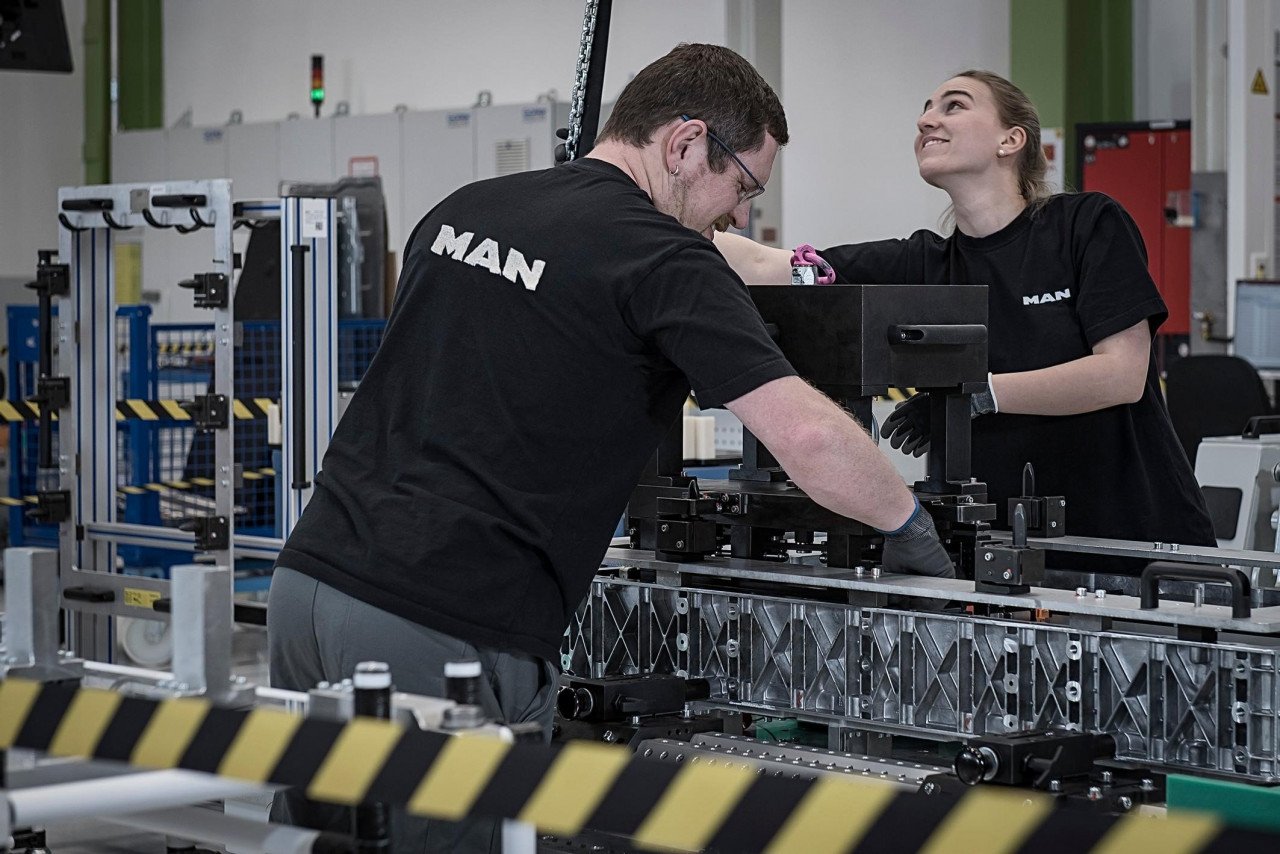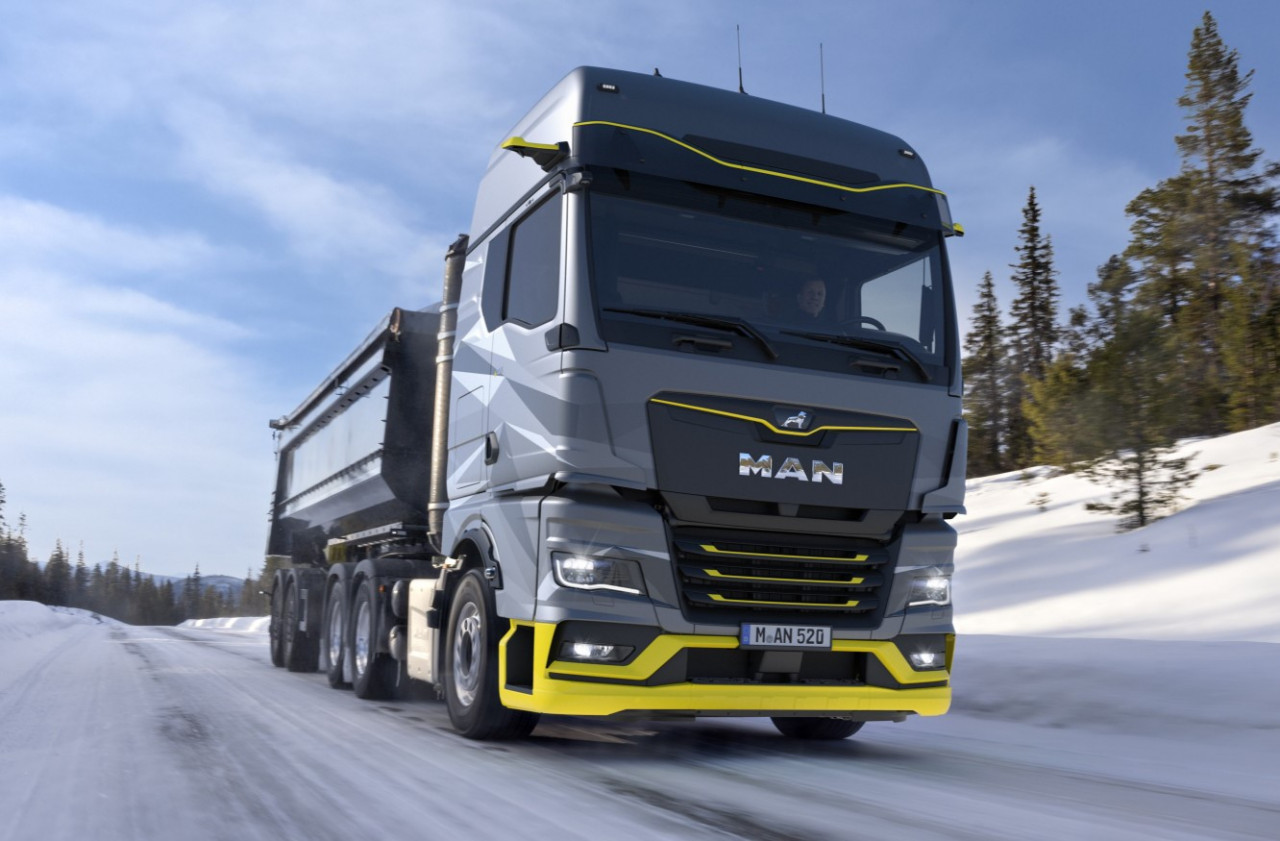European CV manufacturer MAN Truck & Bus is making strident progress in developing a robust product line of zero-emission trucks in European markets. Recently, the brand made an announcement on the development of hydrogen combustion engine-powered truck series 'MAN hTGX', which is expected to enter customer trials as early as next year.
With this, MAN becomes the first European truck maker to develop customer-ready trucks with H2 engines. An initial series of 200 units is to be delivered to customers in Germany, the Netherlands, Norway, Iceland and select non-European countries by 2025, around the same time as its battery-electric trucks reach their respective customers starting later this year.
The 'hTGX' is claimed as an environmentally friendly alternative to battery-electric trucks for use in areas devoid of sufficient charging infrastructure or for markets where sufficient hydrogen is already available, according to the manufacturer.
"We are continuing to focus on battery-electric vehicles to decarbonize road freight transport. These currently have clear advantages over other drive concepts in terms of energy efficiency and operating and energy costs. However, trucks powered by hydrogen combustion engines are a useful addition for special applications and markets", said Friedrich Baumann, Executive Board Member of MAN Truck & Bus and responsible for Sales & Customer Solution.
"We anticipate that we will be able to best serve the vast majority of our customers' transport applications with battery-powered trucks. For special applications, hydrogen combustion or, in the future, fuel cell technology is a suitable supplement", he added.
Baumann further added that the H2 engine 'H45' is based on its 'D38' diesel engine, and is produced at the engine and battery plant in Nuremberg. "The use of familiar technology enables us to enter the market at an early stage and thus provides a decisive impetus for the ramp-up of the hydrogen infrastructure. With the 'hTGX', we have now added an attractive product to our zero-emission portfolio", he said.
The MAN hTGX claims a driving range of 600 kilometres, with a rated engine output of 383 kW and a torque of 2500 Nm at 900-1300 rpm. The hydrogen is compressed to 700 bar (CG H2) for storage in a 56 kg, and the truck can be refuelled in less than 15 minutes.
With less than 1g CO2/tkm, the hTGX will fulfil the criteria as a "zero-emission vehicle" under the new planned EU CO2 legislation, claims MAN.
The brand's electric truck portfolio, on the other hand, has been "flexibly configured" to include a variety of wheelbases, cabs, engine outputs, battery combinations and sector-specific applications. The MAN 'eTGX' and 'eTGS' range from 18 to 28 tonne GVW ratings in 4x2 and 6x2 chassis formats, with power options of 333, 449 or 544 hp for the customers to choose.
The long-range e-truck variants, with five battery packs with a usable capacity of up to 400 kWh, can offer up to 500 kilometres of driving range without intermediate charging. Typical daily mileages in municipal and waste disposal applications are possible with a smaller number of batteries, thereby enhancing payload and cost savings, MAN notes.
The truck maker assures a battery performance period of up to 1.6 million kilometres or up to 15 years, depending on use, for its electric truck range.
"With the new e-truck chassis, we are now increasingly moving into industry applications. This means that our pioneering electric range is in no way inferior to our previous diesel portfolio, even in specialized vehicle bodies," commented Stefan Schall, Head of Sales Truck, Van & Used at MAN Truck & Bus Deutschland GmbH.
Considering the emerging market space for zero-emission trucks in European markets, MAN is betting on a 'dual strategy', upholding both battery electric and hydrogen engine technologies. The commercial trials of its H2 combustion trucks is bound give the brand a comfortable head start in this regard, also contributing to further refinement of the technology in Europe.

MAN investing €100 million for making EV battery packs at Nuremberg
Read More

